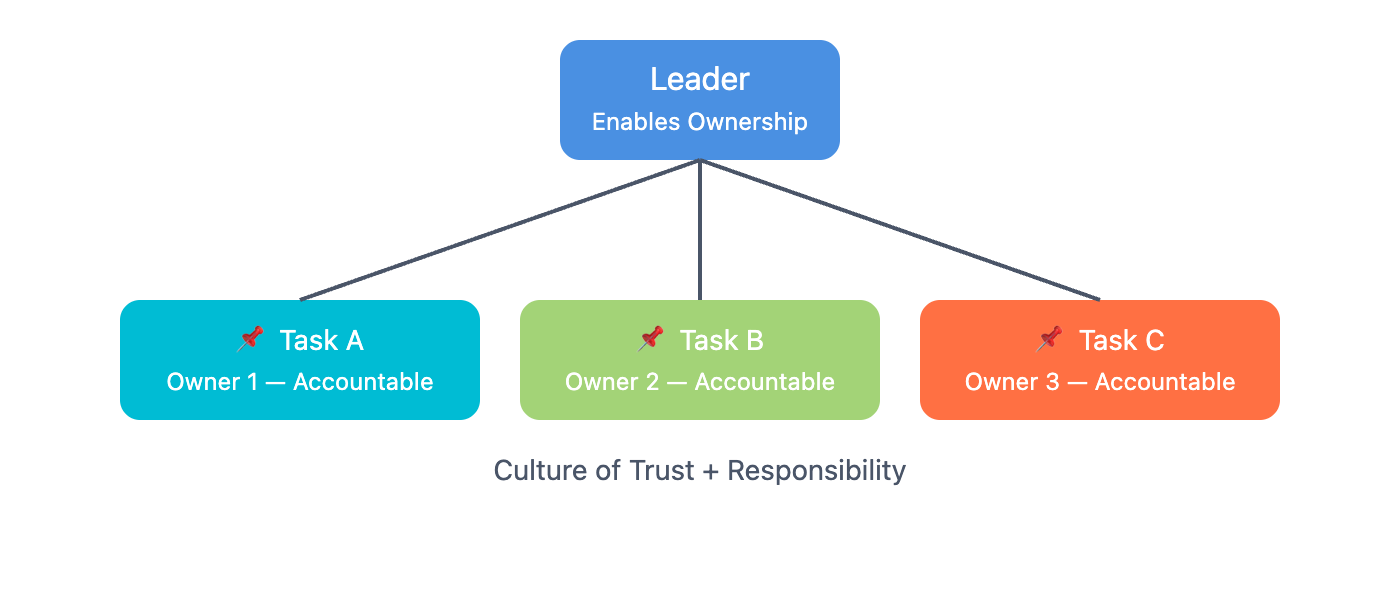In this unit, we will delve into the essential elements of building a culture of responsibility within your team. This culture is pivotal for fostering accountability, trust, and high performance. By understanding the impact of individual responsibility, learning to delegate with purpose, and supporting a culture of accountability, you can create an environment where team members feel empowered and committed to their roles.
Individual responsibility forms the backbone of a successful team. When each team member understands their role and how it contributes to the team's goals, it enhances motivation and accountability. For instance, if a team member is responsible for a specific part of a project, they should know how their work impacts the overall outcome. This understanding encourages them to take ownership and strive for excellence.
As a leader, it's crucial to communicate clearly about each person's responsibilities and how they align with the team's objectives. A simple statement like, "Your work on this project is crucial for meeting our deadline and achieving our goals," can reinforce the importance of their contribution.
Effective delegation goes beyond merely assigning tasks; it's about empowering your team members to take on responsibilities that align with their strengths and career goals. When you delegate with purpose, you provide opportunities for growth and development. For example, if a team member has shown interest in project management, you might delegate a small project for them to lead.
This not only helps them develop new skills but also builds their confidence. When delegating, ensure you provide clear instructions and support, such as, "I believe you can handle this task. Here's what needs to be done, and I'm here if you need guidance." This approach fosters a sense of ownership and accountability.

Creating a culture of accountability involves setting clear expectations, providing regular feedback, and encouraging open communication. When team members know they are accountable for their actions, they are more likely to take initiative and deliver results. Encourage your team to take responsibility for their work by setting measurable goals and providing constructive feedback.
Consider the following dialogue between two colleagues discussing a project:
- Victoria: Hey Jake, I noticed you've been taking on a lot of tasks lately. How are you managing everything?
- Jake: It's been a bit overwhelming, but I'm trying to keep up. I just don't want to let the team down.
- Victoria: I appreciate your dedication, but remember, it's okay to ask for help. We all have our roles, and it's important to balance them.
- Jake: You're right. Maybe I should delegate some tasks to others who might be interested in taking on more responsibility.
- Victoria: Absolutely. Delegating can help you focus on your strengths and give others a chance to grow. Let's discuss how we can redistribute some of the workload.
In this dialogue, Victoria demonstrates the importance of recognizing individual responsibility and the benefits of purposeful delegation. By encouraging Jake to delegate, she supports a culture of accountability and growth within the team.
In the upcoming role-play session, you will have the opportunity to practice these principles in a realistic scenario, reinforcing your ability to build a culture of responsibility within your team.
